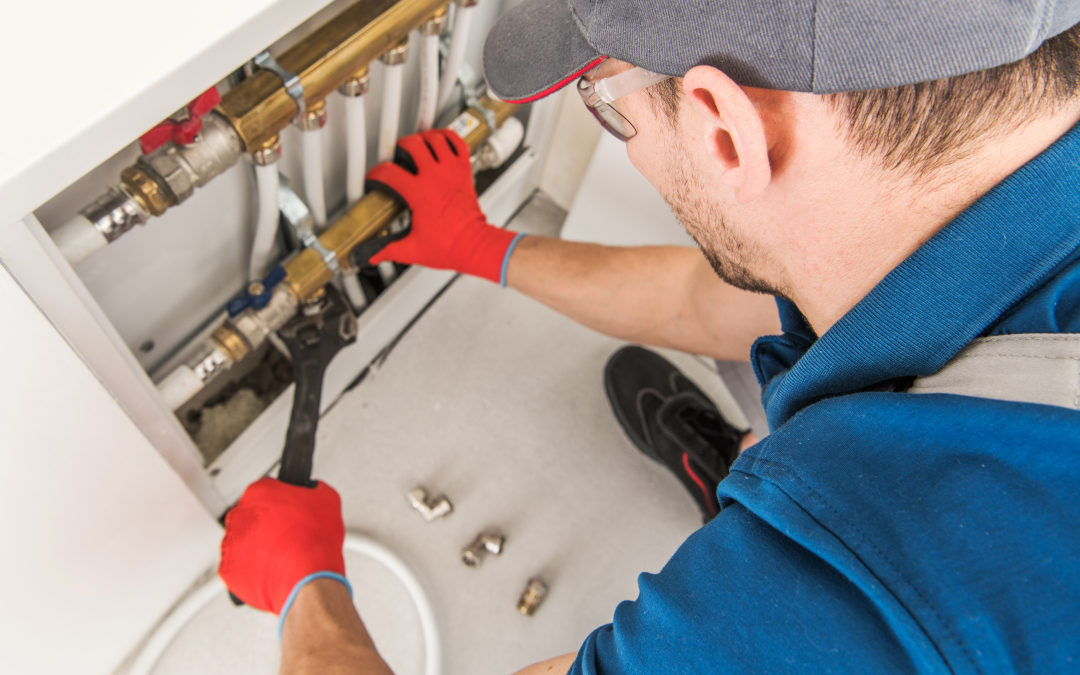Learn About Your Home’s Plumbing and How it Affects You
Do you know how your Richmond home’s plumbing systems work?
Most homeowners would say “no”. While you might know some of the basics of plumbing, most people don’t get a chance to see the system of pipes that provide us clean water.
While it can be easy to ignore your plumbing for a time, it’s always best to understand how your home works. In case of an emergency or if you want to save some money on minor fixes and repairs, understanding your home’s plumbing system could protect you and your family.
The Two Types of Residential Plumbing Systems
While your internal plumbing may seem complicated, it’s actually quite simple once you break it down.
In every home, there are two main types of house plumbing, these are:
- Water supply system
- Drain-water-vent system (DWV)
Water Supply System
This plumbing system brings fresh water to your home using pipes connected either to a city water supply or your own water well. This system brings water to your sink, shower, refrigerator, etc.
If you live close to a street, either within a major city or in a neighborhood, you most likely use city water. This water flows parallel to your home under the street in the “main pipe” and is diverted to your home when you need it.
Within your home, you have access to a water meter, which controls your connection to the main pipe. If you need to conduct repairs or there is an emergency, you can activate the shutoff valve to cut off the flow of water from the main pipe to your home.
Drain Water Vent System
This plumbing system removes wastewater from your home. As such, it never directly connects to your water supply system, relying on gravity to remove wastewater from your home.
The two systems meet at what is known as bridge fixtures, but you know them as sinks, faucets, washing machines, etc. These fixtures are where clean water enters, and where wastewater leaves.
Your DWV system is made up of three components: drain pipes, drain traps and drain vents.
- Drain pipes are downward angeled pipes that use gravity to move wastewater from your fixtures into the sewer line. Because of this reliance on gravity, the pipes require careful placement to prevent blocking.
- Drain traps, also known as P traps are U-shaped pipes that specifically prevent backflow and consistently hold water. By holding water, these traps prevent sewer gases from entering your home through the pipes.
- Drain vents are a separate system of vents that run from your roof and into your durian pipes. They release air into plumbing to encourage smooth drainage.
Two Main Areas of Plumbing
The different plumbing systems are designed to work almost exclusively to serve two areas within your home:
- Your kitchen
- Your bathroom
Kitchen Plumbing System
For your kitchen, most of the plumbing system exists within your walls and connects to fixtures in the room itself. These pipes bring water to your sink and refrigerator while removing waste with the DWV system.
You can usually find the sink’s P trap in a cabinet underneath your sink, while the water supply system will remain behind your walls.
Bathroom Plumbing System
Bathroom plumbing relies heavily on pressure, to the point of including hot ad cold piping systems. Your water supply connects to your shower/bathtub, toilet and sink, and all three also connect to your drain water vent system to remove wastewater.
These systems of pipes are especially important to maintain, as a leak could cause serious damage or create a hazardous environment with waste.
Plumbing Maintenance Keeps Your Richmond Home Safe
Your home’s plumbing systems work automatically and with few problems most of the time. In fact, you probably spend most of your day not even thinking about them. But it’s important to understand how you receive clean water and remove harmful wastewater. If there’s an issue with your plumbing system, you’ll be able to more quickly resolve the problem.
It’s important to watch out for signs of issues with your plumbing, low uncommonly low water pressure or slow drains. These signs indicate a potentially larger problem that you or a plumber should investigate.
You can also do your part to maintain your pipes and plumbing system by following a few simple rules
- Don’t put anything down drains that shouldn’t be there
- Be on the lookout for leaks
- Try to avoid using drain cleaners
- Drain your water heater twice a year
- Insulate your pipes in the winter
- Use strainers in your sinks and showers
Protect Your Home
Your home’s plumbing system affects everything within your house. It keeps your family moving and comfortable throughout the years. It also can cause larger issues like structural damage or flooding if left unmaintained.
For all your plumbing maintenance needs in Richmond, VA, call Mike Wilson Plumbing. With decades of experience in residential plumbing in Chesterfield and Midlothian, we have the experts ready to fix your plumbing issues.
Call us to schedule an appointment and protect your home’s plumbing systems.

